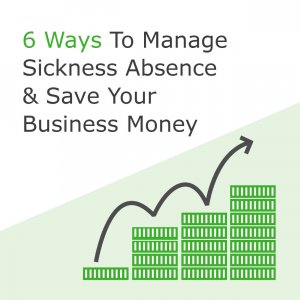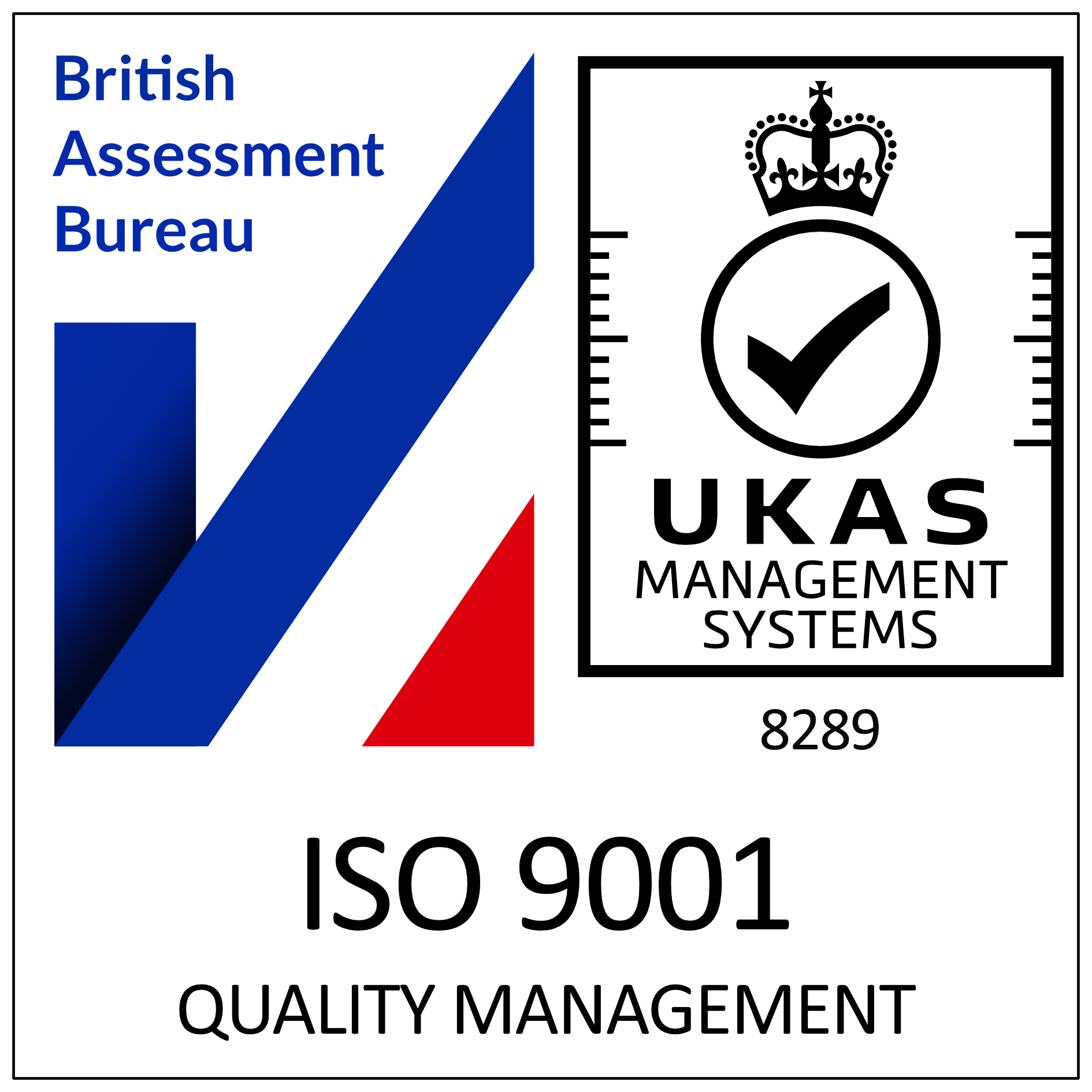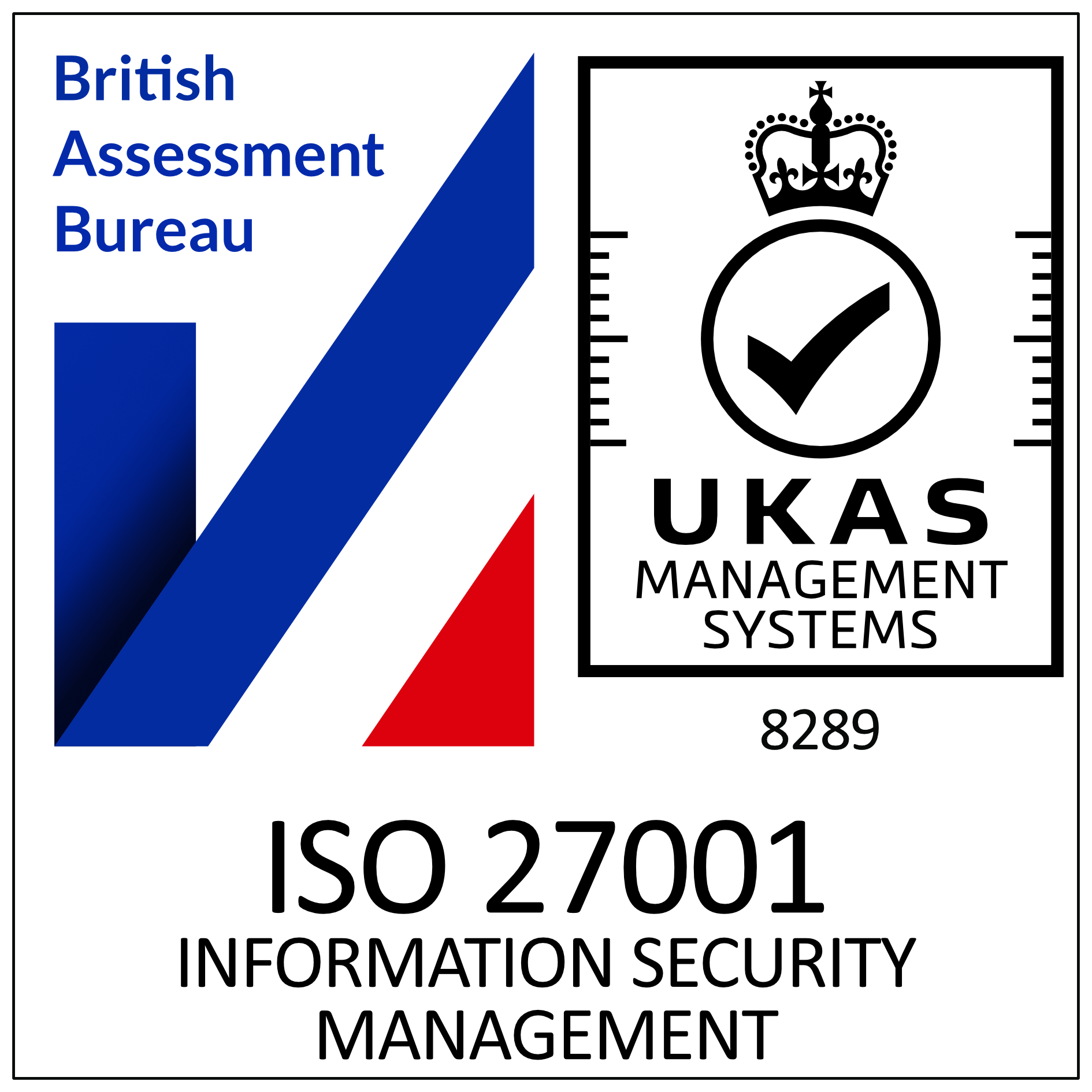
The impact of Covid-19 means that many businesses are likely to see an increase of sickness absence. With businesses needing to react swiftly to a sharp decline in sales, many have had to make redundancies and are continuing to look for other opportunities to make further savings. When you have a smaller team, the impact of sickness absence is even greater and more noticeable.
So, here are 6 easy ways to better manage sickness absence and save your business money. All whilst putting best practice processes in place.
1. Put It In A Policy!
Sounds simple – it really is! However, a surprising number of businesses don’t have documented policies and procedures on how to manage sickness absence. These policies should clearly set out the responsibilities of both the employee and their Line Managers when sickness absence occurs. For example, make the expected behaviours of the employees clear. Include details of how and when your employees should report absences, what happens when they do and what actions Line Managers will take as a result. This will provide all parties with clear roles and guidance to adhere to.
A sickness absence policy doesn’t need to be war and peace. Policies should be easy to access, the information in them should be clear and concise. It’s always worth considering whether your management team requires training on how to implement the policy, especially as absence issues probably aren’t on their minds right now. Instead, they’ll likely be concentrating on integrating their teams back after furlough and adjusting to new changes.
2. Make Data Your King
Ensure that you have a way of correctly recording and therefore being able to accurately report on sickness absence. Remember to provide different categories of sickness absence i.e. the reason for the absence, as well as providing a place to capture information and data arising from return to work meetings.
As reported in the latest Health and Well-Being at Work report (published by the CIPD and Simply Health), 14% of workplaces surveyed reported that their employees had more than ten days of absence over the last year on average. 5% of workplaces reported average absence levels of 15+ days per employee – just imagine the impact on those businesses remaining team members and their productivity.
This will help you to manage the sickness absence in line with your policy and identify whether any triggers have been met i.e. 4 instances in a 12-month rolling period. Data will provide you with an overview of any trends or patterns which in turn will enable you to identify any required interventions or training needs.


If you notice a lot of sickness absence relating to mental health, consider the initiatives you could put in place to support your employees with this both in and out of working hours. For example, Employee Assistance Programmes are relatively low cost to put in place, but can provide really effective care for your employees.



3. Prevention Is Better Than Cure
Many employers are apprehensive to tackle sickness absence issues as they don’t know what they can or can’t say or do not feel equipped to have sensitive conversations. Don’t be. Illnesses connected to mental health are becoming one of the main causes of sickness absence, so these conversations are really important.
Most businesses do provide staff with information about managing their own health and wellbeing. This includes providing access to health advice, smoking cessation, exercise and healthy eating. However, mental health is often forgotten about, or avoided, due to the fear of getting the advice or approach wrong. Overcome this by training and equipping your Line Managers with the tools and awareness they need to spot signs of stress and help to prevent further issues. Early intervention is always best to prevent sickness absence, especially long- term sickness.
4. Don’t Shy Away From The Difficult Conversations


Make sure your Line Managers know what questions they need to be asking in order to find out how to reduce sickness absence – even if they’re difficult conversations to have. Line Managers should feel empowered and equipped to ask employees the questions needed to investigate a situation and make a sensible decision in terms of next steps. For example. they need to know how and whether reasonable adjustments can be made immediately or whether the business will need to engage external expertise for more complex situations.
Too often we see Line Managers immediately requesting referrals to occupational health as a knee jerk reaction as soon as an issue is raised. However, if the Line Managers haven’t done the groundwork and asked the employee the right questions to gather a better understanding of any issues they are facing, occupational health may be unnecessary and will ultimately cost your business more. This is because they will have to back-track to ask the basic questions which have been missed by the Line Managers before they are even able to add any value by utilising their medical expertise.
Again this comes back to the skillset within your management team. It could mean an investment in training on holding difficult conversations is needed but that will cost far less than wasted time spent by occupational health.
5. Embrace Change
Just because it’s the way you’ve always worked, it doesn’t mean it’s the right way for everyone. All employers have a legal obligation to make adjustments where the employee is likely to have a disability as defined within the Equality Act. This could be a physical or mental impairment or both. However, employers should also recognise their responsibility to go beyond these minimum requirements in order to support their employees. This includes employees who don’t have a disability but may need more flexibility in order to make the job work for them – for example, parents or careers.
Providing more flexibility to your employees will reduce your sickness absence, increase staff morale and improve your bottom line. For example, consider reducing the working hours for an employee who needs to spend more time at home to care for a loved one, or perhaps needs medical treatment themselves.
Again, train your Line Managers on how to spot whether reasonable adjustments may be required, and how to approach the topic with an employee.



Don’t be afraid of change. Not only is it the law in some circumstances to consider making reasonable adjustments to cater for your employees’ needs, doing so will also pay off in other ways as your employees will become more engaged.



6. Engage A HR Partner
As well as saving your business money, there are many other benefits to investing in good absence management practices. Given the current pandemic, doing so has become more important than ever.
Good practice will improve employee wellbeing and make them feel more valued and supported. In turn, this will improve performance and drive productivity. All of which will help your business to survive and recover in these uncertain times. Your Line Managers will also become more confident and effective in their roles. This means that any sickness absence patterns can be dealt with far more effectively and before they turn into significant issues.


How We Can Help You To Manage Sickness Absence
Regardless of size, businesses can face a variety of different HR challenges. At The Curve Group, we provide expert HR support to deliver strategic objectives or to resolve complex people challenges. We can deliver one-off interventions or ongoing projects to support business change, growth and development or HR and Learning and Development challenges.
Our flexible, scalable, and cost-effective HR solutions cover the entire employee lifecycle. We offer project-based expert HR support to deliver restructure programmes, redundancies or to resolve tricky Employee Relations cases, whilst our HR Administration outsourcing services can save you money and free up your time to focus on more strategic HR projects.
There are a number of ways we can help your business with sickness absence issues including:
- Creation of a tailored sickness absence policy and process which aligns with your values, approach and existing infrastructure
- Development and delivery of training and best practice guidance on sickness absence to your employees (including Line Managers), providing your business with the knowledge, skills and tools to manage sickness absence effectively
- Access to our expert, impartial and confidential HR advice service to resolve sickness absence issues within your team, either on an ad-hoc project or ongoing basis to ensure compliance and free up time in your business







